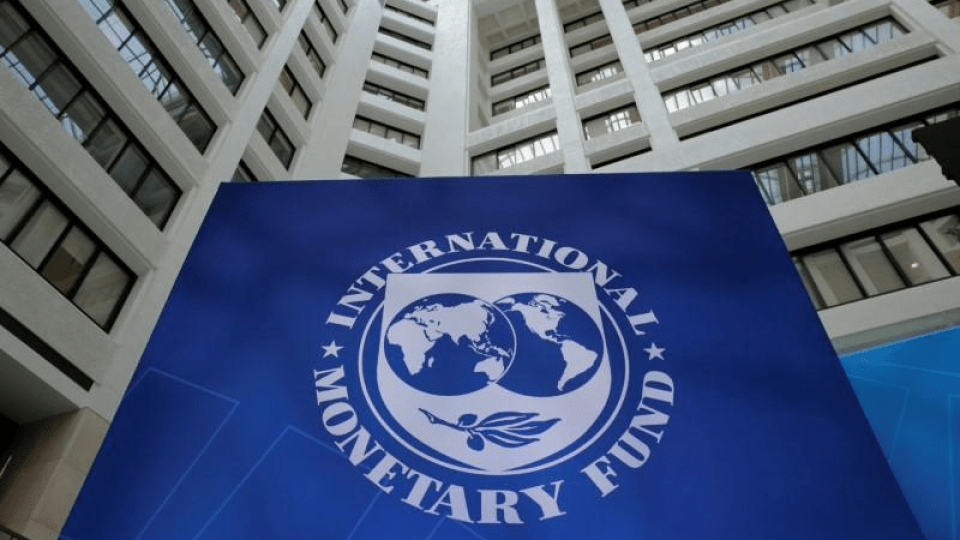June 28, 2023
ISLAMABAD – The International Monetary Fund (IMF) said on Tuesday night that it aimed to “quickly” reach an agreement with Pakistan on financial support from the global lender as Islamabad had taken “decisive measures” to align its policies with the economic reforms sought by the institution.
“Over the past few days, the Pakistani authorities have taken decisive measures to bring policies more in line with the economic reform programme supported by the IMF,” the lender’s mission chief for Pakistan, Nathan Porter, said in a statement.
These measures, he said, included the passage of a budget by the parliament that broadened the tax base while opening up space for higher social and development spending, as well as steps towards improving the functioning of the foreign exchange market and tightening monetary policy to reduce inflationary and balance-of-payment pressures that affected particularly the more vulnerable.
“The IMF team continues discussions with Pakistani authorities with the aim of quickly reaching an agreement on financial support from the IMF,” he added.
Porter’s statement comes as Pakistan continues to negotiate with the IMF for the completion of a ninth review of the $6.5 billion Extended Fund Facility agreed in 2019 and the release of a $1.2bn tranche.
The review has been stalled since October and the government is now hopeful of its completion soon with Prime Minister Shehbaz Sharif engaging with the IMF chief multiple times in recent days.
‘Trying to get $2.6bn in pending funding’
Prior to Porter’s statement, Finance Minister Ishaq Dar said on Geo News show ‘Capital Talk’ that the government was working to find a mechanism to get the full $2.6 billion in pending finances under the IMF loan programme.
Finance Minister Ishaq Dar speaks on Geo News show ‘Capital Talk’ on Tuesday. — Screengrab via Geo News YouTube
Dar expressed optimism that an agreement would be reached with the IMF for the release of the much-needed $1.2bn tranche, pointing out that a total of $2.6bn was “unspent” under the programme.
With the IMF programme set to expire on June 30, even after the completion of the ninth review, some amount would remain pending in funding under the programme as a tenth review seems out of question.
The minister said the government was hoping and trying not just to get $1.2bn pending funds following the completion of the ninth review but also to find a way out for the release of the entire pending amount of $2.6bn.
“It is my wish list,” he said, adding that “next one to two days are crucial”.
The finance minister also said in case an agreement was not reached with Pakistan, the government had prepared a “plan B”, but it would not be in the “national interest” to share further details on this.
Talks with IMF
Earlier this month, the IMF had raised several issues with Pakistan’s budget for fiscal year 2024, saying that some of the proposed measures went against the EFF programme’s conditionality.
Esther Perez Ruiz, IMF representative for Pakistan, had earlier said Pakistan needed to satisfy the IMF on three counts, including the budget for the upcoming fiscal year, before its board will review whether to release the pending tranche.
For its part, the government responded to the IMF’s concerns, saying that it was “flexible” on the budget and remained engaged with the international lender to reach an “amicable solution”.
Subsequently, the government last week made several changes to the next fiscal year’s budget, including fiscal tightening measures dictated by IMF in a last-ditch effort to secure critical funding.
“Pakistan and IMF had detailed negotiations for the last three days as a last effort to complete the pending review,” Finance Minister Ishaq Dar had said during a National Assembly session on Saturday in which he unveiled the changes.
The changes include Rs215bn additional tax measures, a Rs85bn spending cut, withdrawal of an amnesty on foreign exchange inflows, lifting of import restrictions, a Rs16bn hike in Benazir Income Support Programme allocations, and the powers to increase the petroleum levy from Rs50 to Rs60 per litre.
The revised budget was then passed by the Parliament and later also signed by Acting President Sadiq Sanjrani.
Meanwhile, PM Shehbaz held back-to-back meetings with the IMF chief in Paris last week and a phone call today.
A handout released by the Prime Minister’s Office (PMO) today said that the premier discussed the IMF programme with the global lender’s chief and the IMF director general acknowledged efforts by the finance minister and his team for completion of the programme.
PM Shehbaz expressed hope that coordination on the points of the IMF programme would lead to a decision from the global lender in a day or two, the statement added.
On Monday, an official told Dawn that “almost all the irritants between the IMF staff and the Ministry of Finance were addressed hours before the finance minister’s wind-up speech on Saturday”.
The official also said that it was now up to the IMF’s mission to line up the precise dates for the lender’s executive board approval and disbursement of funds.
However, he acknowledged that it was not on the calendar until June 30, when the $6.5 billion Extended Fund Facility agreed in 2019 is set to expire.


